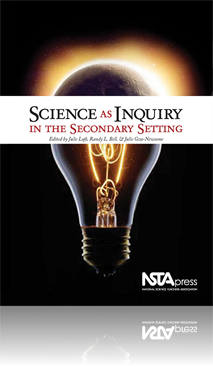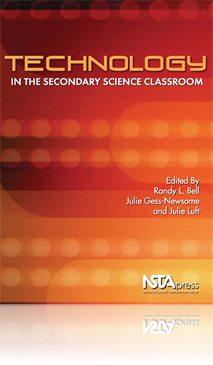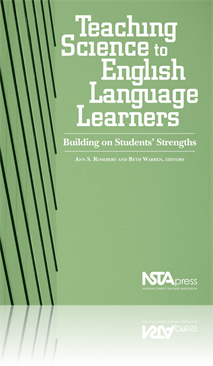All Book Chapters
Book Chapter
Inquiry in the Chemistry Classroom: Perplexity, Model Testing, and Synthesis
Lavoisier's theory of combustion is used as a context for a set of interrelated, inquiry-fostering investigations in a high school chemistry class. Further, this example of chemistry inquiry is used to develop some central ideas about inquiry pedag...
Book Chapter
Field Studies as a Pedagogical Approach to Inquiry
By designing and conducting their own field studies, students learn science in a meaningful context, apply scientific knowledge to local environmental issues, use resources within and around the school, and link classroom science to real-world issu...
Book Chapter
Creating Coherent Inquiry Projects to Support Students Cognition and Collaboration in Physics.
This chapter presents an inquiry template that involves three phases: (1) students observe and reflect on phenomena and make predictions about underlying mechanisms, (2) students gather data to investigate these mechanisms as they build and refine th...
Book Chapter
Inquiry-Based Science Instruction for Students with Disabilities
Students with disabilities often are struggling readers who cannot successfully access and use print information. As a result, they usually experience difficulties with traditional science instruction, which typically relies on textbooks and other pr...
Book Chapter
Scientific Inquiry: The Place of Interpretation and Argumentation
Secondary school students typically believe that scientific inquiry begins with a direct observation of the natural world and that scientific laws and theories become apparent from these observations. In reality, observation provides only highly infe...
Book Chapter
In Praise of Questions: Elevating the Role of Questions for Inquiry in Secondary School Science
If scientific inquiry is to be part of the focus in secondary school science, teachers must develop learning situations in which question posing is essential and they must help students learn how to pose scientifically oriented questions. In focusing...
Book Chapter
Educational Technology in the Science Classroom
Each year billions of dollars are invested in establishing an effective infrastructure for employing information technology in schools. Almost all classrooms have been wired for internet access, computers have been installed, and inservice sessions a...
Book Chapter
Essentially, technology use in the science classroom is most effective when it encourages deeper student engagement with science content, when it is used to support rather than replace what we know about effective science instruction, and especially ...
Book Chapter
Digital Images and Video for Teaching Science
New technologies have revolutionized our ability to see and learn scientific phenomena. Reasonably priced digital still and video cameras have recently become popular additions to many classrooms, and teachers use them regularly to document student l...
Book Chapter
Using Computer Simulations to Enhance Science Teaching and Learning
Technological advances have increasingly brought instructional digital technologies into the science classroom. Teachers may have greater access to Internet-connected classroom computers, wireless laptop carts, computer projectors, and interactive wh...
Book Chapter
Probeware Tools for Science Investigations
Probeware is the general term used for probes and software that can be used with microprocessors (computer, calculator, palm device, etc.) to make scientific measurements. The characteristics of rapid data collection, nearly instantaneous display of ...
Book Chapter
Acquiring Online Data for Scientific Analysis
As you seek to provide more opportunities for your students to engage in scientific inquiry, you may find data collection to be time consuming and expensive. The internet, which provides immediate access to numerous data sets from government agencies...
Book Chapter
Online Assessments and Hearing Students Think About Science
This chapter examines online assessments and explores how they might be useful in your science classroom. Although there is a wealth of computer-based assessment tools (such as homework and exam generated programs that accompany many science textbook...
Book Chapter
Virtual schooling offers students the opportunity to enroll in a science course not taught at their home school or school district, interact with expert instructors in a particular field, and gain access to subject matter they may have otherwise miss...
Book Chapter
A Teacher's Perspective: Science Talks
What are science talks? And what are the benefits of including them in the science curriculum? Mary Rizzuto, a science curriculum instructional specialist at the Needham Science Center in Needham, Massachusetts, shares her perspective. ...




